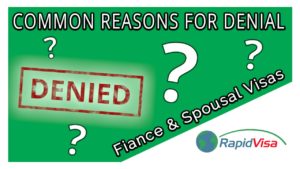“My fiancée and I have met in person, but we communicate through translation apps. Will we have trouble getting approved for a fiancée visa?”
Technically there’s no requirement that you both speak a shared language, but the reality is that U.S. officials seek to determine whether or not you have a genuine relationship. Not being able to speak to each other could raise some concerns with them. Importantly, though, U.S. officials look at the entirety of the evidence for your relationship. It’s not an automatic disqualifier, but it is a possible red flag. You need to be ready to explain to the interviewer how you communicate together and how the relationship works in that respect.


